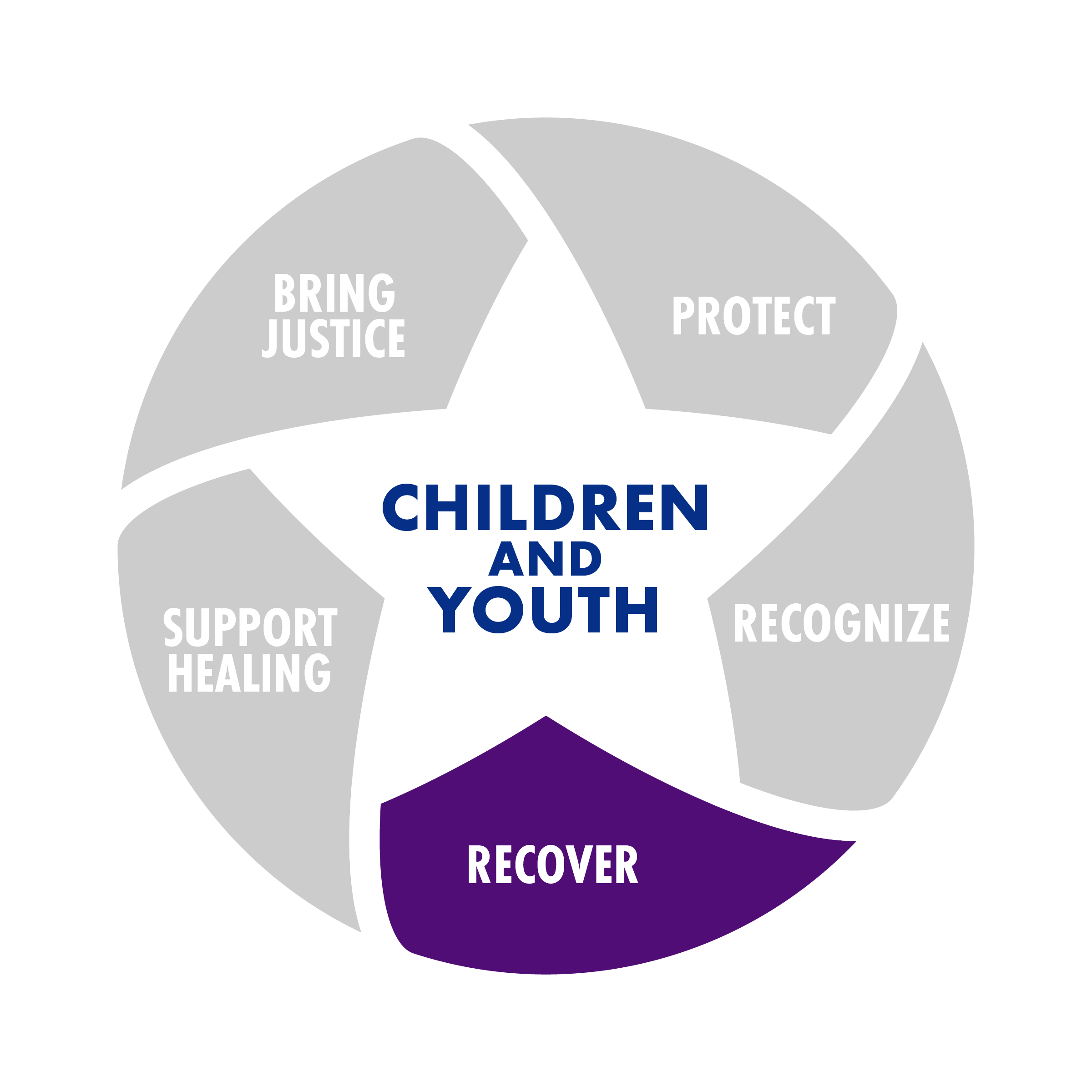Child Sex Trafficking - Recover
 CSTT is strengthening the capacity and expertise of juvenile justice, criminal justice, and child protection programs to support trauma-informed care for survivors through collaborative and coordinated responses. Key strategies include Care Coordination and Commercially Sexually Exploited Youth (CSEY) Advocacy programs.
CSTT is strengthening the capacity and expertise of juvenile justice, criminal justice, and child protection programs to support trauma-informed care for survivors through collaborative and coordinated responses. Key strategies include Care Coordination and Commercially Sexually Exploited Youth (CSEY) Advocacy programs.
CSTT further supports recovery by encouraging all programs to:
- Register with the National Human Trafficking Hotline to help with timely recovery of victims and effective referrals;
- Train and equip stakeholders to provide victim-centered, trauma-informed responses.
Resources
- National Human Trafficking Hotline - Watch our National Human Trafficking Hotline webinar to learn more about the Hotline’s work, capabilities, its service directory, and its partnership with the State of Texas.
- Texas Abuse Hotline
- Shared Hope Protective Response Model
Programs Supported by Grants from the Office of the Governor
Care Coordination Agencies
CSTT leads the statewide implementation of the Texas Model for Care Coordination to promote effective victim-centered care while supporting the investigation and prosecution of traffickers.
CSEY Advocacy Programs
CSEY Advocates provide crisis intervention, ongoing case management, and supportive, trust-based, relational long-term care for survivors. These advocates work under a set of minimum standards and best practices developed by CSTT.
View a map of CSEY Advocacy agencies
Emergency Shelters
Emergency placements are available 24/7 to provide survivors with physical safety, safety planning, and immediate trauma-responsive case management to meet their basic needs.
- Family Ties (Waller County)
- Heart of Texas Region MHMR (McLennan County)
- Jonathan’s Place (Dallas County)
Juvenile Justice-Based Programs
- Dallas County Assessment, Stabilization, and Advancement Program (ASAP) for Trafficked Girls (Dallas County)
- Harris County Juvenile Probation’s (GIFT) Program (Harris County)
